2018-02-05
In her speech, Prof. Tao Yitao extended her sincere welcome to Mr. Pham Minh Chinh who, as an old friend of CCSEZR, rendered his arrival a cordial to our mind, and expressed her fervent hope for a friendly and fruitful communication between two sides. Mr. Pham Minh Chinh said revisiting SZU was a very homey experience just like returning home and meeting his brothers and sisters.
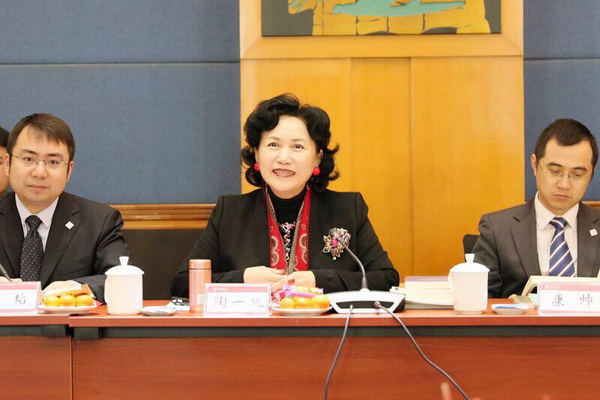
Prof. Tao Yitao delivers a speech.
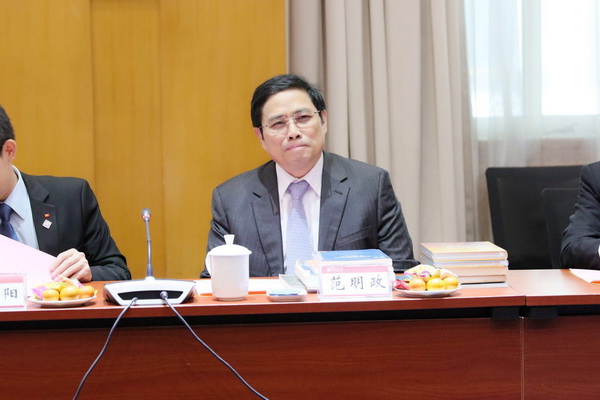
Mr. Pham Minh Chinh delivers a speech.
In his speech, Pham Minh Chinh recalled the arduous process of promoting and building SEZs in Vietnam over the past six years from 2012 and extended his gratitude to CCSEZR for its consultative support on key strategies in Vietnamese SEZ construction, especially to Prof. Tao Yitao and Prof. Yuan Yiming who have offered great support and help by leading professional teams to visit Vietnam several times and providing valuable opinions on the theoretical foundation, strategic development paths and legal framework planning of Vietnamese SEZ construction. He said that the CPV set up the national SEZ steering group recently with the prime minister of Vietnam as the group leader and himself as the deputy group leader. He sincerely asked scholars at the CCSEZR for advice on the three primary challenges confronting the group: 1) How to supervise the exercise of power when the system of people's congress is not in place? 2) Should the land tenure be 70 or 99 years? 3) How do the SEZs develop competitive edges both locally and globally.
Prof. Tao Yitao made a brief introduction of the CCSEZR and BRRIICD to the guests. She pointed out that the CCSEZR played a nationally authoritative role in the field of SEZ and China's path research and the BRRIICD was geared to become a new-type thinktank with international influence. The CPV delegation and Chinese representatives looked back on the past cooperation between the CCSEZR and Quang Ninh Province, Vietnam and went over some of the landmark events thereinto: 1) In August 2012, a group headed by Ms. Do Thi Hoang, the then Standing Deputy Secretary of the Quang Ninh Provincial Party Committee, arrived at SZU on a two-day visit to discuss issues about and learn experience of SEZ construction from China. Scholars at the CCSEZR offered strategic suggestions about Vietnam SEZ construction; 2) In January 2013, a five-member expert panel led by Prof. Tao Yitao, Prof. Yuan Yiming and Prof. Huang Yaying headed for Quang Ninh Province to offer policy consulting at the invitation of the Quang Ninh Provincial Party Committee. The expert panel provided theoretical foundations for SEZ construction in Quang Ninh Province and made valuable suggestions on the strategic path and policies to propel SEZ development; 3) In July 2013, a 14-member group headed by Pham Minh Chinh, the then Secretary of the Quang Ninh Provincial Party Committee, arrived at the CCSEZR for a one-day visit to draw on China's experience of SEZ construction about which the two sides had in-depth discussions; 4) In June 2013, Pham Minh Chinh, the then Secretary of the Quang Ninh Provincial Party Committee, attended the 2013 China's Special Economic Zone Forum in Kashgar, China and discussed legal framework planning and implementation approaches of Vietnamese SEZs with scholars from the CCSEZR; 5) In December 2013, thirty officials at the department and bureau levels from Quang Ninh Province arrived at the CCSEZR for a two-week training on organizational administration and regime of China's SEZs; 6) In March 2014, the first World Special Economic Zone Development Forum was held in Hạ Long City, Quang Ninh Province, Vietnam by the CCSEZR. Meanwhile, the scholars from the CCSEZR carried out site investigation to offer consultative support to Quang Ninh Province with regard to strategic policies.
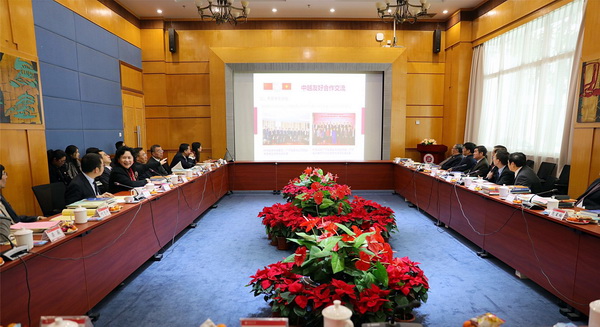
The two sides recall the friendly cooperation between the CCSEZR and Quang Ninh Province
Experts attending the seminar discussed and responded to the questions put forward by Pham Minh Chinh. Prof. Yuan Yiming, Deputy Director of the CCSEZR, pointed out that it was an important lesson that trading land use rights would facilitate the development of a country. With the ever-shortening life cycles of modern industries, it was appropriate to make the tenure of industrial land uses fall between 30 and 50 years so that land resources would not be "locked up" by industrial alterations. However, the tenure of residential land use should be extended to buoy the long-term expectation of residents. Meanwhile, he proposed four strategies (cost, export, industry and park strategies) to improve the industrial competitiveness of Vietnam, which were also the important feasible paths for Vietnam to develop SEZs. Prof. Huang Yaying, dean of the Law School of SZU, said that a people's congress system would endow SEZs with the powers to legislate, to set up financial budgets and create final statements and to determine the personnel appointments, which, as the primary benefits of such a system, reflected the autonomy of SEZs and provided a good policy environment to safeguard their development, as seen from the experience of Shenzhen SEZ. Therefore, the central government of Vietnam was suggested to give SEZs full authority in regard to the three powers, which was an essential legal system for economic development of SEZs. Prof. Tao Yitao concluded that high-tech drive and comparative advantage strategies were rational choices for Vietnamese SEZs to develop consistently. As seen from the experience of Shenzhen SEZ, the key to safeguarding a city's competitiveness lay in the effective institutional arrangement of governments and the competitiveness of a city was actually determined by its institutions and talents.
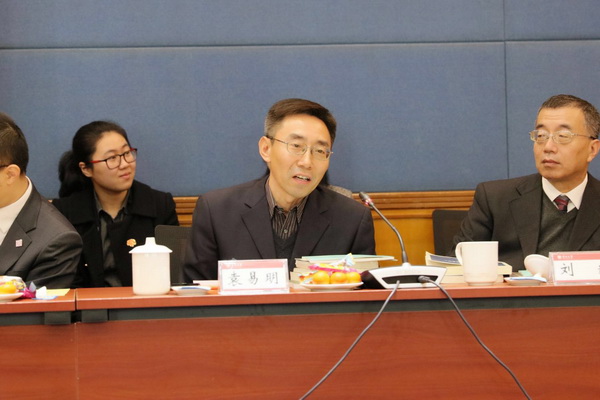
Prof. Yuan Yiming delivers a speech.
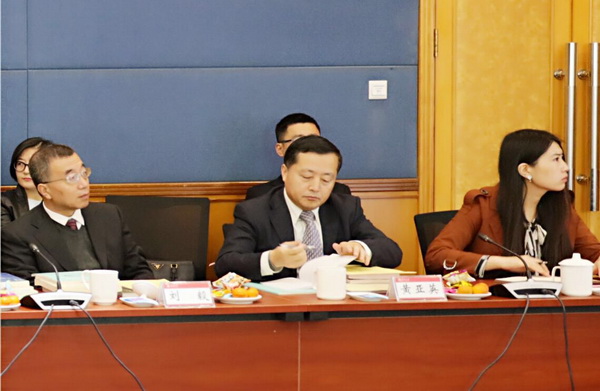
Prof. Huang Yaying delivers a speech.
In his closing statement, Mr. Pham Minh Chinh thanked the scholars for their valuable advice whose support was a massive boost for SEZ construction in Vietnam and said that the soaring development of Shenzhen amply demonstrated the correctness of the CPC's policy and proposition and advantages of socialist systems over capitalist ones. China has made remarkable achievements over the past forty years since the reform and opening-up. He believed that the CPC Central Committee with Comrade Xi Jinping at its core would create an even better future for China by realizing the two centenary goals, the Chinese dream, the all-around economic, political, cultural, social, and ecological progress and the Four-pronged Comprehensive Strategy on schedule and even ahead of schedule. Prof. Tao Yitao extended her thanks to Mr. Pham Minh Chinh and his party for their visit and sincerely invited them to attend the upcoming 2018 World Special Economic Zone Forum in Shenzhen. Also, she invited aspiring young people in Vietnam to study at SZU and enjoy the scholarships offered by the BRRIICD. Finally, she, on behalf of Chinese delegates at the seminar, expressed best wishes for the long-standing friendship between Chinese and Vietnamese, great achievements of China's reform and opening-up and Vietnam's reformation, prosperity and strength of the two countries and well-being of their people. The seminar came to an end in a friendly atmosphere. Afterwards, the attendees took a group photo to mark the occasion in front of the International Conference Hall. The seminar strengthens the friendship of the two sides whose cooperation is expected to fuel the cultural exchange between the two countries, SEZ construction in Vietnam and Sino-Vietnamese cooperation under the context of the Belt and Road initiative.
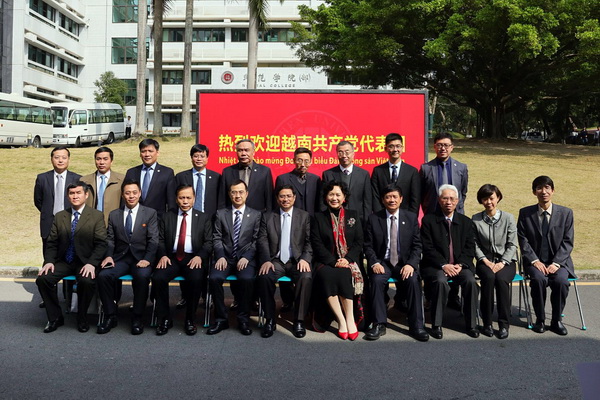
Group photo of the attendees
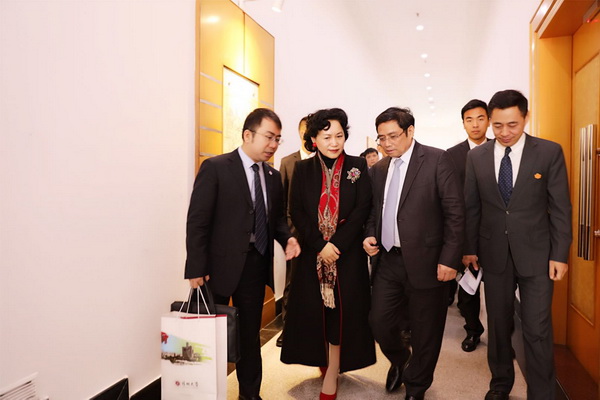
Prof. Tao Yitao (second from left) exchanges opinions with Mr. Pham Minh Chinh (second from right).
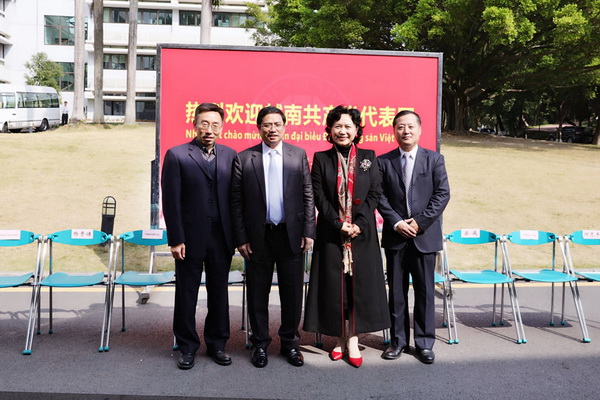
Group photo of Mr. Pham Minh Chinh (second from left), Prof. Tao Yitao (second from right), Prof. Yuan Yiming (first from left) and Prof. Huang Yaying (first from right)